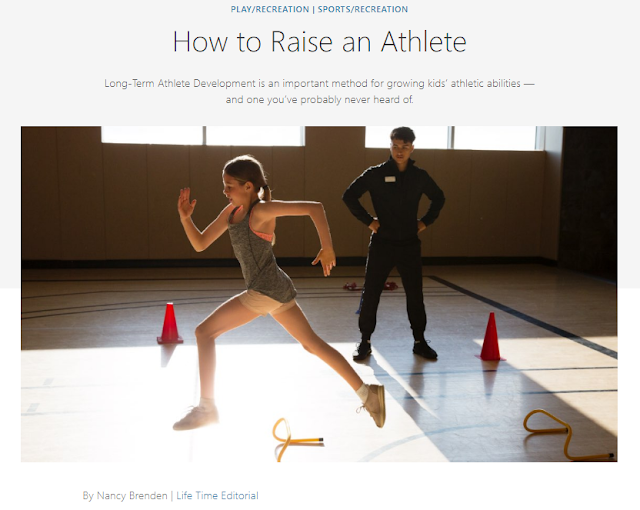Should We Raise Athletes Or Should We Raise Children?
My son participates in a recreational soccer league and last week, his coach asked this question to the player's parents: "Do we want to win or do we just want to play and have fun?" Actually, if one strictly follows the rules of the recreational league, parents do not have such an option. Our recreational soccer league specifically states, "All players in good standing must play at least 50 percent of the game." Clearly, all players must be given the opportunity to play regardless of the player's skills. Yet, our team even bothers to ask whether it is acceptable to keep on the bench players deemed not to be at the level necessary to win a game. While some parents did express their desire to win, one parent says that we should treat this situation like how we treat children in their classrooms. We are teaching every child in a classroom regardless of what ability we perceive a child has. Every child deserves an education. The same should hold true in recreational sports, every child deserves an opportunity to play. I came across a post on Facebook last month by Life Time on Raising Athletes, and a comment caught my attention: "Nobody should try to raise an “athlete”. Try to raise a child, and if they become an athlete, that’s great. If they become a scholar, theater major, or musician; that’s great too. Just make sure you raise your kids to be respectful, honest, and good natured."
 |
| Above copied from Life Time |
The article on Life Time actually talks about bringing back fun into sports. The article starts by saying, "Kids are naturals at free-form play: They can run, jump, toss balls, and ride bikes without giving it much thought. At the same time, and without being aware of it, they learn, practice, and develop fundamental athletic skills." Unfortunately, with eyes focused on competition, we forget what actually matters. With the notion that our children may actually receive athletic scholarships for college, we have even abandon raising our children to become well-rounded individuals. Adolescents can easily spend two to three hours a day training on one specific sport while completely neglecting social studies, math, science and literature. A college scholarship will not matter if our child does not even finish high school. Even if the chances of becoming a professional athlete are too slim, some parents are willing to put all their eggs in one basket for this specific dream. Raising children to be athletes, of course, has several good points, but these are all lost, if parents and subsequently, their children, see winning as the only goal for playing.
There are therefore plenty of reasons why recreational sports must be accessible to every child who wants to play. There is a lot to learn even in defeat, perhaps even more than in a victory. There is a better future for children to remain active even in their adult lives. Playing comes with health benefits. And in team sports, there is a great opportunity to learn how to work together and collaborate. Playing is essential for children. And that parent was correct to point out that equity must exist in sports, the same way it must be present in education.
Comments
Post a Comment